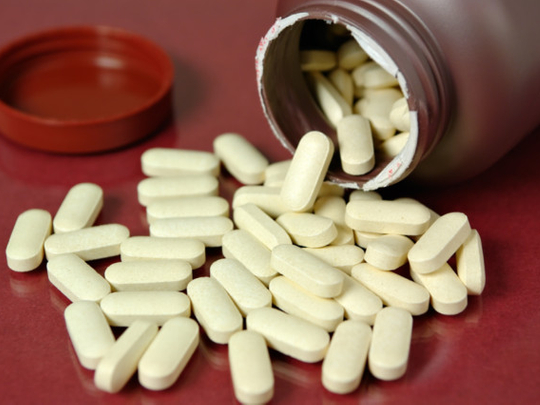
Do you keep your unused courses of antibiotics? Do you buy antibiotics over the counter when you have a self-diagnosed fever or other illness? Have you ever reused antibiotics prescribed by the doctor for another bout of illness?
You are not alone in doing any of this, and across the globe the misuse and over use of antibiotics has led to the phenomenon of antibiotic resistance.
What is antibiotic resistance?
According to the World Health Organisation (WHO), antibiotic resistance occurs when bacteria change in response to the use of these medicines.
International medical sources confirmed that many of the characteristics of modern medicine – from bowel surgery to cancer treatment and organ transplants – depend on our ability to treat infections.
Want to find out what you can do to fight this? Click here
But what happens when the infection-causing bacteria no longer react to the medicines because they have evolved to be stronger?
In the UAE, the Ministry of Health and Prevention (MOHAP) is drafting a new legislation, which will prohibit the sale of antibiotics at any pharmacy in the UAE without a prescription
How can this affect you?
According to experts, antibiotic resistance would represent going back 200 years, where minor infections are deadly. By 2050, nearly 10 million people a year could die from antibiotic resistant infections, which could mean you and your children today or their children later.
At present, in the United Kingdom, it is estimated that almost 5000 patients die every year due to having infections that cannot be treated. Similarly, in the United States, at least 23,000 people die each year from infections that are antibiotic resistant.
The US Centres for Disease Control and Prevention estimates there are more than two million people in the United States, who get infections with bacteria that are resistant to at least one antibiotic, used to treat that infection.
Basically, any medicine that you are overusing today will stop working as the bacteria get resistant and flourish spreading the infection or disease.
What can you do for yourself and the family?
- Do not pressure your doctor to prescribe you an antibiotic. He or she will know best how to treat your medical ailment. Nine times out of ten you will not need an antibiotic to treat a medical ailment.
- Become more involved in your health and seek more information on what antibiotics are and what their use is intended for. Antibiotics only kill bacteria, not viruses.
- Use antibiotics only as prescribed by your doctor. Complete the course of antibiotics as instructed by your doctor.
- Do not save antibiotics for the next time you may be ill. Only Doctors are qualified to make a proper diagnosis. Preferably, keep visiting your Family Medicine Consultant as he or she will know your medical history best.
- Do not share remaining antibiotics you may have at home with anyone.
- Do not self-diagnose. Instead visit a Family Medicine Consultant, who will act as your health champion, and will diagnose you properly.
- Ask your doctor the following questions when being prescribed an antibiotic:
- How do you know what kind of infection I have? (Do mention to the doctor that you are aware antibiotics don’t work with viral infections, i.e. the common cold or flu).
- Do I really need this antibiotic? What are the alternatives?
- Can I get better without using it?
- What side effects should I expect?
- Instead of saving antibiotics, dispose of them adequately by dropping them at a trusted care provider in the UAE.
Over-prescription of drugs
The proposed legislation does not cover prescriptions at this point. However, a platform that will help mitigate this is the Dubai Health Authority's “Salama”; a unified electronic health record system, currently available in numerous public medical facilities, which will be connected to the MOH’s National Unified Medical Record.
Having a nation-wide system that integrates all patients’ health records at public and private healthcare facilities will effectively provide a single electronic file for each UAE resident. This will also help the authorities to identify where over prescription of antibiotics is occurring and help foresee disease outbreaks, such as antibiotic resistant infections.
This guide was written in collaboration with King’s College Hospital London in the UAE.
To help people in the UAE properly dispose of their remaining antibiotics, King’s facilities in Dubai and Abu Dhabi will be providing a free disposal service starting from next month. For further information please call +971 2 501 4000 (Abu Dhabi), +971 4 378 9555 (Dubai) or visit http://www.kchclinics.com/











